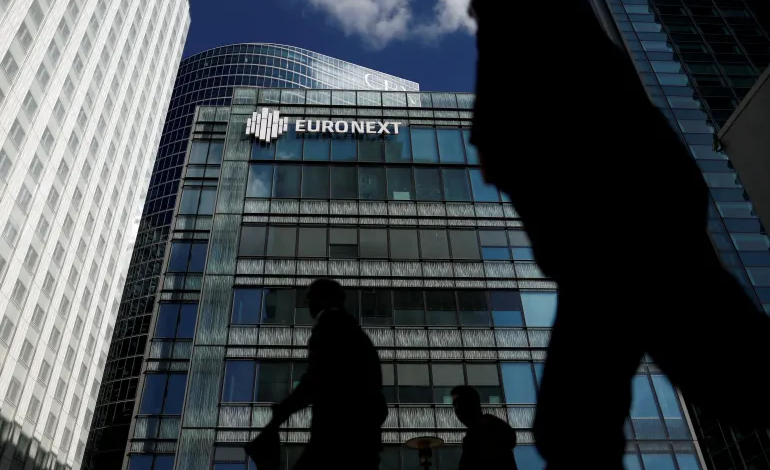Fear is sweeping global markets.. Find out the reasons


Market Sentiment Shifts Dramatically: From Bullish to Panic in a Few Weeks
The financial markets have experienced a significant shift in sentiment, moving from a bullish trend to a state of panic within just a few weeks, according to a report by The Economist.
Stock Market Plunge
Stock markets, which were previously reaching all-time highs, are now facing sharp declines. The report highlights that the Nasdaq 100 index, dominated by tech giants, has dropped by more than 10% since mid-July. Meanwhile, Japan’s Topix index witnessed an even larger decline, plummeting by 6% on August 2 alone, marking its worst day since 2016 and its worst two-day streak since 2011.
Market Panic
The Philadelphia Semiconductor Index, which tracks global chipmakers, has seen a sharp decline of over 20% in recent weeks. Companies like Arm have lost 40% of their market value. Nvidia, once a market favorite, has experienced a volatile period with its shares falling 7%, rising 13%, and then dropping another 7% within just three days.
On August 2, Intel’s value fell by more than 25%, and the KBW Bank Index of U.S. bank stocks dropped by 8%, with Japanese bank stocks seeing similar declines.
Safe Havens Under Pressure
Traditional safe-haven assets like gold, the Japanese yen, and U.S. Treasuries have shown mixed reactions. Gold, usually a hedge against market chaos, dropped by more than 2% on August 2. This unusual decline suggests that investors may be selling gold to quickly raise cash to meet margin calls, potentially leading to further market instability.
Factors Contributing to Market Panic
According to The Economist, several key factors are contributing to the current market turmoil:
AI and Semiconductor Industry Realities:
The realization that the AI sector, particularly the semiconductor industry, may not meet the high expectations set during the previous market boom has emerged as a major cause of the disturbances. Major tech companies like Alphabet, Amazon, Apple, Meta, and Microsoft have reported earnings that disappointed investors, leading to significant drops in their stock prices.
Even Alphabet and Microsoft, which exceeded analysts’ revenue expectations, saw their stock prices fall the day after reporting results. Amazon, which missed expectations, faced harsher penalties from shareholders.
U.S. Economic Concerns:
The U.S. economy has shown signs of weakness, with the unemployment rate rising to a three-year high of 4.3% in July and only 114,000 jobs added, well below the expected 175,000. This increase in unemployment and low job growth has heightened fears of a potential recession.
The report notes that traders have begun betting that the Federal Reserve will cut interest rates by half a percentage point at the next meeting in September to prevent a slowdown.
Strength of the Japanese Yen:
The rapid strengthening of the yen, partly due to the Bank of Japan’s surprise decision to raise interest rates on July 31, has led to a drop in Japanese stock prices. Additionally, the unwinding of carry trades, where investors borrow at low rates in yen to invest in higher-yielding assets, has added another layer of market instability.
Looking Ahead
The current market turmoil raises important questions about the future. The significant drop in gold prices and bank stocks is particularly concerning. Whether the coming week will see further declines depends on investor sentiment and behavior.
The Economist’s analysis underscores the complex and multifaceted nature of the current market environment, with both economic fundamentals and investor psychology playing crucial roles in shaping the trajectory of the financial markets.








